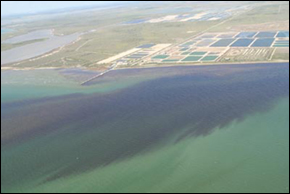Federal Water Tap, November 7: “Land Grabs” and Fracking
Proper Property Rights
A United Nations committee working to establish guidelines for land rights has negotiated and agreed to about 70 percent of the items on its working list, according to the U.S. Agency for International Development. The U.S. government is chairing the committee, which is seeking to bring some order to what critics call “land grabs”—foreign companies or governments acquiring large tracts of agricultural land in countries with tenuous property rights laws.
The World Bank has been closely following the issue, and last week a team of researchers in the rural development unit released a paper analyzing what drives the land acquisitions. They found that because food-importing countries are most actively pursuing these deals, agricultural productivity is a main factor. Interestingly, the local business climate was insignificant, but lax land rights governance and land rights security made a location more attractive.
Fracking on Public Lands
The U.S. Interior Department announced that it would soon issue rules requiring companies to disclose the chemicals they use when using the hydraulic fracturing—or “fracking”—drilling method on public lands. An Interior deputy secretary, according to Reuters, told a fracking advisory panel that the department would release draft guidelines in a couple months and a final ruling 12 months after that.
EPA Fracking Study
For a while it was planning a plan for the plan, but now the Environmental Protection Agency has unveiled something fully formed. On Thursday the agency announced that preliminary results from its study on the effect of fracking on water resources would be available in 2012. The study, which will be finalized in 2014, will focus on water acquisition, use and disposal, along with the chemicals added in the process. Researchers will examine sites in Colorado, Texas, North Dakota and Pennsylvania.
EPA Water Regulations
The recession has wrecked the budgets of many local and state governments, leaving them in a bind when it comes to finding money to comply with water and sewer regulations. Last week in a three-page memo, the EPA’s acting assistant administrator for water announced new planning guidelines to help cities and states manage sewer overflows by “implementing the most important projects first.” The memo also encourages the use of “green infrastructure” instead of relying solely on pipes and treatment facilities.
The agency, according to the memo, is developing a more comprehensive “framework.” Greenwire reports that cities that have already signed sewer-overflow agreements with the federal government do not know if the new framework will be applied to those settlements, which often cost billions of dollars.
FOIA Win
Last week, this space covered an attempt by the U.S. Department of Justice to allow government agencies to lie about the existence of certain public records. According to the Sunshine in Government Initiative, the Justice Department, because of prodding from Senators Patrick Leahy (D-Vt.), Chuck Grassley (R-Iowa) and others, has dropped the rule that would hinder Freedom of Information Act requests.
Federal Water Tap is a weekly digest spotting trends in U.S. government water policy. To get more water news, follow Circle of Blue on Twitter and sign up for our newsletter.
Brett writes about agriculture, energy, infrastructure, and the politics and economics of water in the United States. He also writes the Federal Water Tap, Circle of Blue’s weekly digest of U.S. government water news. He is the winner of two Society of Environmental Journalists reporting awards, one of the top honors in American environmental journalism: first place for explanatory reporting for a series on septic system pollution in the United States(2016) and third place for beat reporting in a small market (2014). He received the Sierra Club’s Distinguished Service Award in 2018. Brett lives in Seattle, where he hikes the mountains and bakes pies. Contact Brett Walton





Leave a Reply
Want to join the discussion?Feel free to contribute!